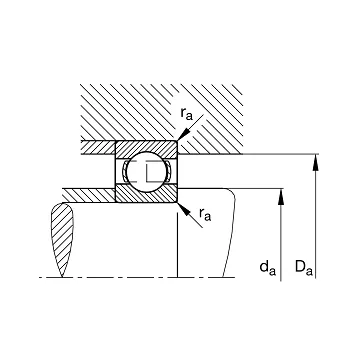Sep . 07, 2024 09:40 Back to list
High-Quality Ceramic Ball Bearing Manufacturing Process Supplier
The Manufacturing Process of Ceramic Ball Bearings A Supplier’s Perspective
Ceramic ball bearings are increasingly becoming a preferred choice in various industries due to their superior performance characteristics compared to traditional metal bearings. These advantages include reduced weight, increased hardness, corrosion resistance, and improved thermal stability. Understanding the manufacturing process of ceramic ball bearings is crucial for suppliers who aim to meet the growing demand in aerospace, automotive, and medical sectors.
The manufacturing process begins with the selection of high-quality ceramic materials, commonly zirconia or silicon nitride. These materials are chosen for their exceptional mechanical properties, including high wear resistance and low thermal expansion. The initial step involves powder preparation, where raw materials are mixed and milled to achieve a uniform particle size. This ensures consistent performance in the final product.
Next, the prepared ceramic powder is shaped into the desired form. This can be accomplished through various techniques, with the most popular being isostatic pressing and injection molding. Isostatic pressing involves applying uniform pressure in all directions, which helps eliminate porosity and enhance density. Injection molding, on the other hand, allows for complex geometries and is often used for larger production runs.
Once shaped, the green ceramic parts are subjected to a sintering process. This involves heating the components to a temperature below their melting points, allowing the particles to bond together. Sintering enhances the strength and stability of the ceramic material, resulting in a durable product. The temperature and time parameters are critical, as they significantly influence the microstructure and eventual properties of the bearings.
ceramic ball bearing manufacturing process supplier

After sintering, the ceramic components undergo a series of grinding and polishing operations to achieve precise dimensions and surface finishes
. Precision is paramount, as even minor deviations can affect performance and lifespan.Quality control is a vital aspect of the manufacturing process. Suppliers conduct rigorous testing, including hardness checks, dimensional inspections, and performance evaluations under different loads and temperatures. This ensures that the ceramic ball bearings meet international standards and customer specifications.
Finally, once the ceramic ball bearings pass all quality checks, they are packaged for shipment. As a supplier, maintaining a robust supply chain and ensuring timely delivery is essential to meet customer demands and foster long-term relationships.
In conclusion, the ceramic ball bearing manufacturing process involves careful selection of materials, precise shaping, sintering, and stringent quality control. Suppliers play a crucial role in delivering high-quality products that meet the diverse needs of modern industries, driving innovation and improving efficiency in various applications.
Latest news
-
25MM 2 BOLT UCFLX05-14 Flange bearing unit( oval)
NewsMar.07,2025
-
4 bolt UCF 200 series Pillow block bearings
NewsMar.07,2025
-
25MM 2 BOLT UCFLX05-14 Flange bearing unit( oval)
NewsMar.07,2025
-
UCF216-50 4-Bolt Flange Housing Square Bearing
NewsMar.07,2025
-
25MM 2 BOLT UCFLX05-14 Flange bearing unit( oval)
NewsMar.07,2025
-
spherical roller bearing material exporter
NewsMar.07,2025





